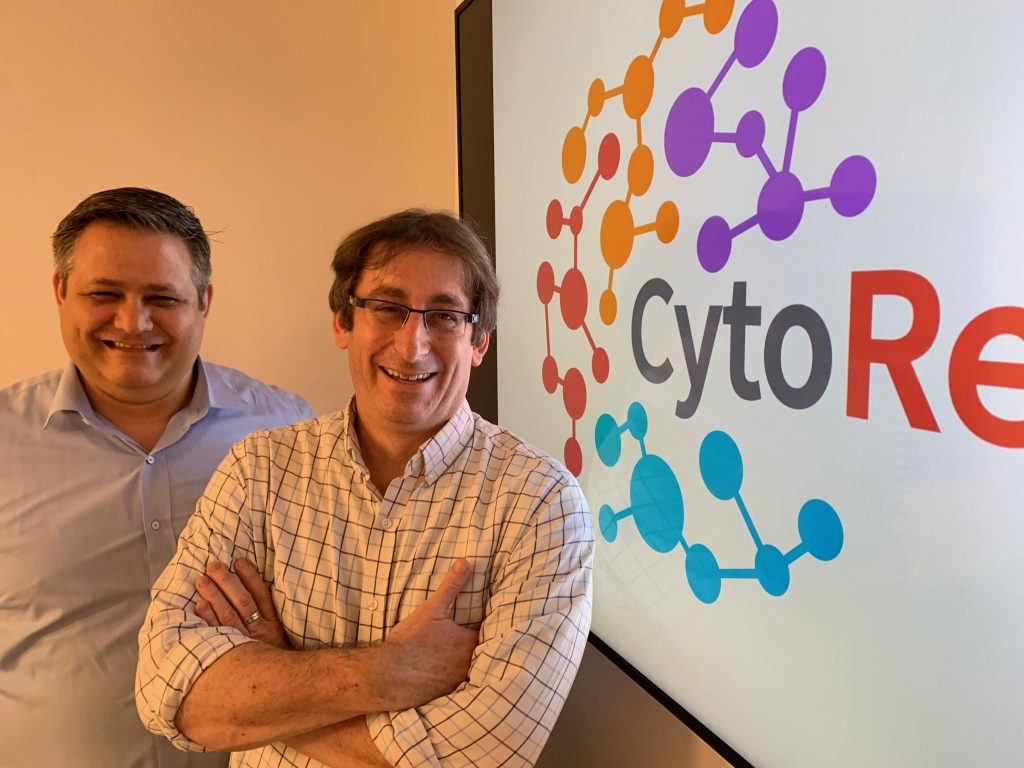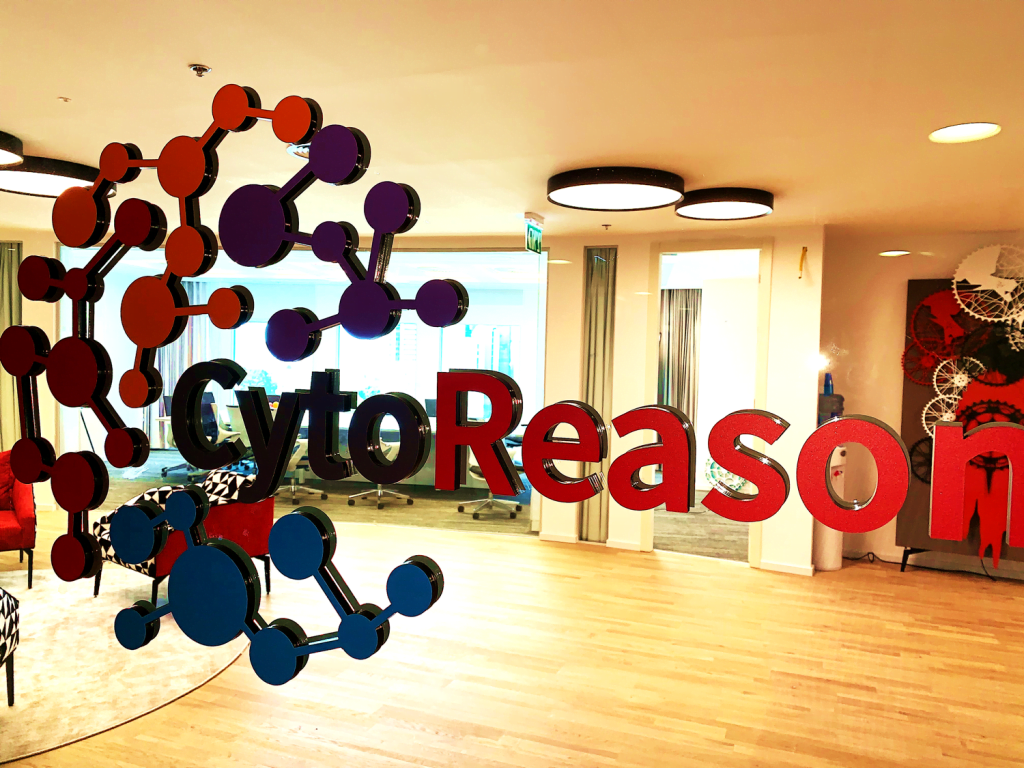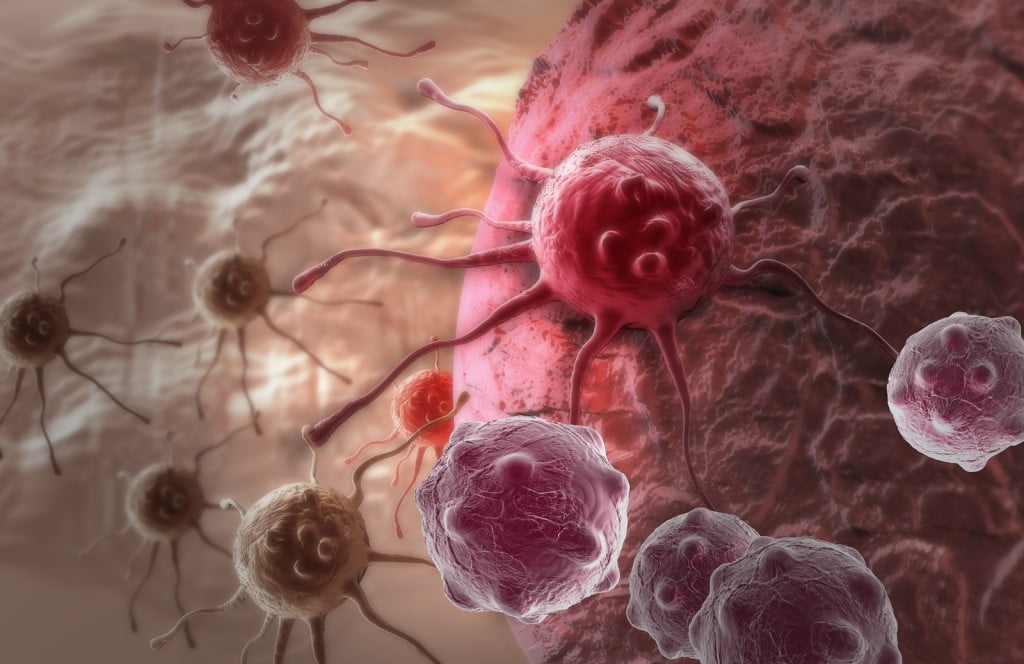The world of pharmaceutical drug development and discovery is notoriously complex, expensive, and slow-moving. It can take billions of dollars and between a decade or two from the research and development stage to market approval.
And rightly so. After all, human lives are at stake.
But imagine if you could feed data about a new pharmaceutical drug into a machine learning approach that can then tell you which patients with which diseases will respond to the drug – all without having to run large-scale clinical trials?
SEE ALSO: Scientists Harness AI, Deep Learning To Fast-Track Drug Discovery And Development
That is exactly what Israeli startup CytoReason has developed. Founded in 2016 by scientists and researchers from the Technion and Stanford, the company built what it is calling the world’s first and only machine learning platform that can quantify a person’s immune system at a cellular level in order to better understand disease responses and treatments, and facilitate the discovery and development of more effective drugs. The simulations are applicable to cancer immunotherapy, and autoimmune, neurodegenerative and infectious disease research.
CytoReason has running collaborations with three top, global pharmaceutical companies including British multinational GlaxoSmithKline (gsk) and US-based multinational Pfizer, and with the Parker Institute for Cancer Immunotherapy, a leading US research institution that coordinates cancer research efforts between scientists, clinicians, and industry partners.
“Essentially, we are aggregating human data on a molecular level,” CytoReason co-founder and CEO David Harel tells NoCamels from the company’s offices on the 16th floor in one of Tel Aviv’s Azrieli towers.
“If you look at the human body, everyone is made up of the same organs. And every organ is made up of the same tissue. And every tissue is made up of the same cells, which are then made up of the same proteins, which are influenced by genes. Of course, the types of cells and the proportions differ and change, but in principle, it’s all the same. What we are doing at CytoReason is trying to build a computational model of human tissue, to then support clinical trials of new pharmaceuticals. That is huge!” he says.
It really is. The costs of clinical trials account for a huge part of R&D expenses in the pharmaceutical industry, not to mention the ethical implications that come with testing drugs on human subjects. Computerizing those trials would not only be more cost-efficient but also greatly reduce the risk for the possible negative effects on test subjects such as long-term health issues or even death.
Monetizing data sets
CytoReason was founded by a team of six people – Harel, Elina Starosvetsky, Ksenya Kveler, Renaud Gaujoux, Yuval Kalugny, and Professor Shai Shen-Orr – and currently employs some three dozen people, most of whom are PhDs with extensive backgrounds in pharmaceuticals and biotech.
Harel says the idea behind CytoReason was conceived over a beer at the beach with Shen-Orr, a professor at the Technion and the head of the Shen-Orr Systems Immunology & Precision Medicine, and a personal friend.
Harel had just gotten back from a stint in the United States and was looking for “something new” while Shen-Orr was “working in interactional biology and software, and somehow we got to the idea that one could contribute data sets to better understand human tissue. But we did not yet know how to monetize it,” he explains.
A key moment came with a breakthrough in cancer research.
The two were following the developments surrounding independent cancer research by James P. Allison, PhD, of The University of Texas MD Anderson Cancer Center, and Dr. Tasuku Honjo of Kyoto University in Japan, who were jointly awarded the Nobel Prize in Physiology or Medicine in 2018 for their respective work in the discovery of cancer therapy by inhibition of negative immune regulation.
Each had identified a protein that functions as a “brake” on the immune system, tricking the body into thinking a cancerous cell is in fact healthy. Releasing the brake would unleash the immune system on the threat and cancer therapies – cancer immunotherapy – based on these discoveries proved to be strikingly effective.
A mutual friend of Harel’s and Shen-Orr’s, meanwhile, was hired by the Parker Institute, which needed help building the computational infrastructure that would monitor the clinical trials of new immunotherapy drugs.
Sign up for our free weekly newsletter
Subscribe“So our friend then called us and asked for help, to which we said: For $1 million, we will do whatever you want. Today, it would be more like $10 million. But that’s how we started,” Harel recalls.
He says the project set him and the other five founders on a path toward building the data-powered model.
“We found that instead of just monitoring trials, we can differentiate beforehand who responds to a drug and who does not,” he explains.
Immunotherapy drugs have horrible side effects, Harel says, “which is okay as an alternative to cancer, but only if you know that the drug will actually help you. We realized that we are able to predict who will actually respond to the drug and who will just be stuck with the side effects – an asset that could be sold,” he tells NoCamels.
The CytoReason team went on to conduct a study at the Technion, in which it tried to predict how patients would respond to REMICADE (infliximab), a drug commonly used for the treatment of IBD. CytoReason’s technology showed to have very high accuracy in its predictions – a proof of concept that opened doors.
“We called Pfizer and gsk, and immediately got invited for presentations. We demonstrated our technology, did more proofs of concept, and then were asked to partner up with both of the organizations on their drug development,” he says.
Shen-Orr told Forbes in an article published late last month that CytoReason’s tech is able to calculate immune age in one of two ways: “Via cell-subset composition nearest neighbor approach or based on a gene expression signature where the genes are predictive of the cell-subsets composition, and they test for their enrichment in the gene expression pattern of the sample. The immune profiles of individuals are used to predict immune changes based on a machine learning methodology deployed on data on a range of cell-subsets. ”
“The immune age is a biological clock that will help to identify, the decline and progress in immunity that occurs in old age, to determine preventive measures and develop new treatment modalities to minimize chronic disease and death,” he added.
‘Deeply human’ work
CytoReason’s tech has so far yielded two pending patents, 10 commercial and scientific collaborations, and 16 peer-reviewed publications.
Harel says it was a combination of forces that made CytoReason’s immune-focused methodology work: Big Data, machine learning, and biology. He describes it as “the intersection of computer science and biology.”
SEE ALSO: The Future Of Medicine: Israeli Scientists Unveil New Tech To 3D-Print Personalized Drugs
“We took the smartest people from both worlds, put them into one room and solved a problem even ‘big pharma’ with its tremendous resources could not work out. That’s what is so special,” he says.
Harel also doesn’t lose sight of the “deeply human side” amid the advanced science and tech. “We have a big responsibility to be accurate because at the end of the day, we are talking about a drug being injected into thousands of people or not; we are talking about lives, about the quality of life of human beings,” he says.
Harel believes many of the people he works with – at CytoReason and beyond – “are working towards a greater good, and that kind of community is beautiful.”
Related posts

Editors’ & Readers’ Choice: 10 Favorite NoCamels Articles

Forward Facing: What Does The Future Hold For Israeli High-Tech?

Impact Innovation: Israeli Startups That Could Shape Our Future






Facebook comments